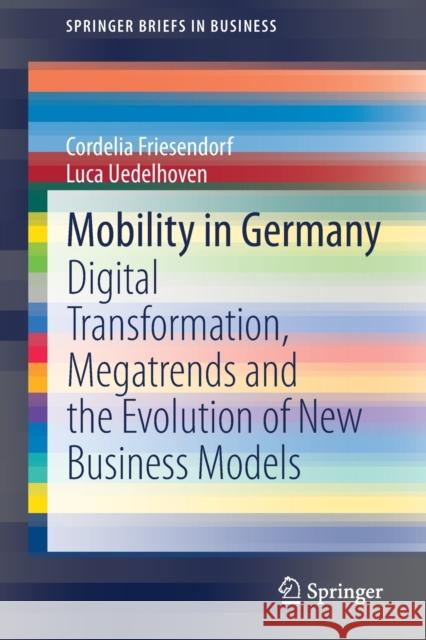Mobility in Germany: Digital Transformation, Megatrends and the Evolution of New Business Models » książka
topmenu
Mobility in Germany: Digital Transformation, Megatrends and the Evolution of New Business Models
ISBN-13: 9783030718480 / Angielski / Miękka / 2021 / 72 str.
Kategorie:
Kategorie BISAC:
Wydawca:
Springer
Seria wydawnicza:
Język:
Angielski
ISBN-13:
9783030718480
Rok wydania:
2021
Wydanie:
2021
Numer serii:
000413098
Ilość stron:
72
Waga:
0.13 kg
Wymiary:
23.39 x 15.6 x 0.43
Oprawa:
Miękka
Wolumenów:
01
Dodatkowe informacje:
Wydanie ilustrowane











